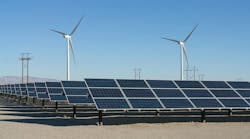The National Action Plan Coalition last week decried the federal government for its "lack of a clear vision and strategy for implementing demand response" and urged the Federal Energy Regulatory Commission and national policymakers to take a stronger leadership role and form a broad platform for communicating the benefits of demand response to the American public.
As smart grid pilots provide more data indicating that dynamic pricing curbs energy usage and prompts better customer usage behaviors, individual states have embraced aggressive strategies for implementing demand response. Many have adopted demand response-friendly energy policies, over half are approving major smart meter deployments, and over two-thirds have committed to renewable portfolio standards.
"States have created the parade and now the federal government needs to get in front of it and become the drum major," said the coalition, formed to drive action for the national demand response plan, at the conclusion of the 2011 National Town Meeting on Demand Response and Smart Grid in Washington, D.C. "Demand response will never be a buzzword but it is critical that consumers understand its numerous potential benefits and adopt the changes necessary to achieve national energy efficiency goals."
One of the chief Congressional mandates severely lacking in the National Action Plan on Demand Response, released in early July, was a clear communications program aimed at consumer education and support, the Coalition said. A federally supported education program needs to communicate that demand response means pricing options, energy information feedback, plus convenient, automated thermostat and appliance control. It should also emphasize that the benefits of demand response include lower energy expenses, reduced air emissions, fewer and shorter power outages, expanded renewable energy, and more efficient and lower costs for electric vehicle charging.
"Without clear vision for the smart grid, the United States risks being eclipsed in the energy innovation market by Europe and China, both rapidly deploying and investing in energy efficiency solutions," according to the coalition. This month the European Commission proposed a new policy framework of its own for achieving the European Union's goal of 20 percent energy conservation by 2020. The proposed directive not only lays down rules designed to remove market barriers that impede energy efficiency but also proposes that European Union members adopt penalties for non-compliance.
"We are seeing tremendously rapid adoption of the smart grid in Europe, more than $7 billion in investments in EU countries," said eMeter Chief Regulatory Officer and NAPC board member Chris King. "The United States is in real danger of losing our momentum in the sector if we do not create a clear vision for demand response, the smart grid and clean energy as a whole."

